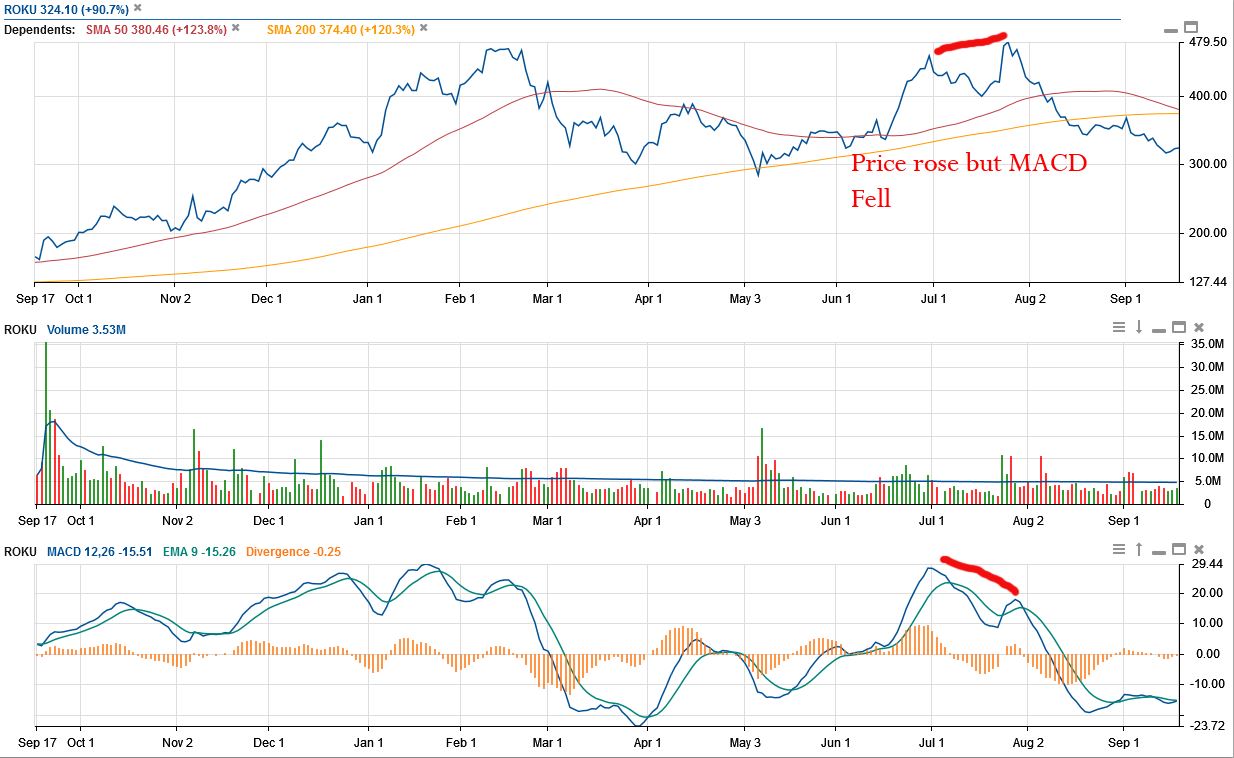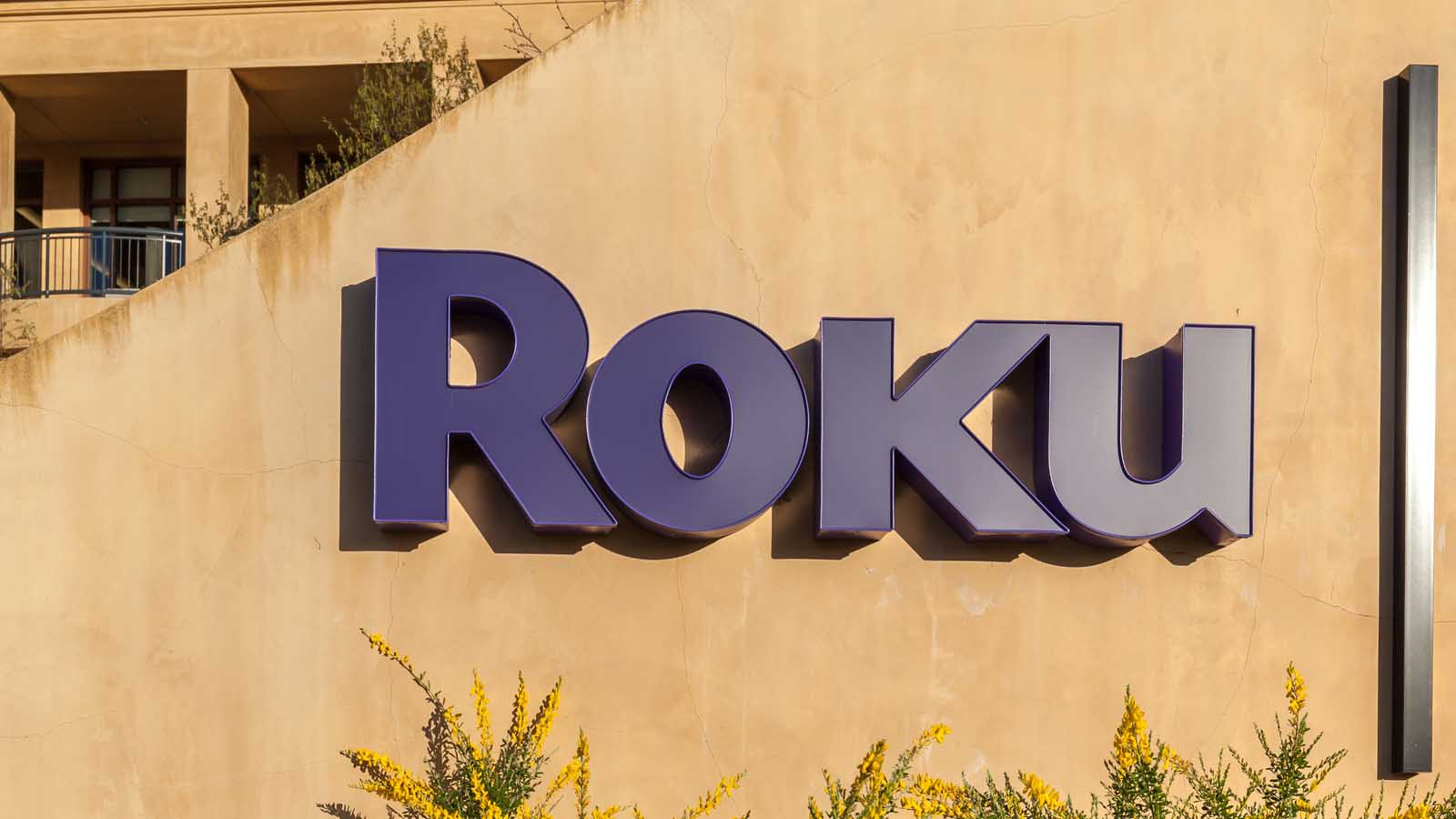Back in July, Roku (NASDAQ:ROKU) looked like it would trade above $500. However, ROKU stock fell short, reaching a high of $490.76 before steadily falling afterward. Compared to the Nasdaq Composite — which is still close to 52-week high — the stock has now lost a significant chunk of its value.

Today, ROKU is trading around $330 per share. The stock closed at $324.77 on Sept. 22. Shareholders reacted poorly to the quarterly results for its second quarter. However, the figures were not as bad as you might first assume.
Here’s what you should know about ROKU stock moving forward — and why you should buy in.
ROKU Stock and the Downtrend
As I said, ROKU stock fell sharply after posting Q2 results,. For the period, total net revenue grew by an impressive 81% to $645.1 million. However, as a content streaming supplier, investors cared more about the streaming hours and the active customer account totals.
Both figures were below estimates for the quarter. Streaming hours came to 17.4 billion — down by 900 million from the previous quarter — while active accounts came to 55.1 million. That was an increase of just 1.5 million from Q1 2021.
However, despite fewer streaming hours, average revenue per user (ARPU) still rose by 46% year-over-year (YOY) to $36.46. Roku also has a good chance of growing its ARPU further. It enhanced its product offering in the U.K. by launching its TCL TV models. This will further drive platform adoption. Later this year, the company will bring its players to Germany as well. The more users Roku has worldwide on its affordable hardware, the more valuable its platform will become.
On top of this, the company benefited from revenue contributions from both content distribution and advertising in Q2. As consumers get fed up with the high costs of cable, more will give Roku’s platform a try. Plus, the company added “key tools like Roku Pay and performance marketing,” which will help marketers deliver increasingly relevant ads to customers.
All in all, the quarter still showed promise for this name. And Roku’s efforts aren’t stopping anytime soon.
Strategic Moves
To enhance user engagement, Roku recently partnered with Comcast’s (NASDAQ:CMCSA) NBCUniversal. Viewers were able to watch the 2020 Tokyo Olympics on its platform. The company also leveraged its growing audience by offering big titles like Cruella.
While streaming hours disappointed investors, Roku’s recent acquisition of Quibi’s content also shows promise. For example, Roku Originals has now been bolstered with 30 free titles from the deal. Expect Roku to build more momentum for the Roku Channel as more users join its platform and dump others.
For the third quarter, Roku now expects revenue of up to $685 million. What’s more, gross profits will be between $315 million and $325 million. Of course, the firm may still lose $3 million in the worst-case scenario. If profitable, however, its potential $7 million in net income is still a good start. These figures suggest Roku is in the early phases of higher profits.

Chart courtesy of Stock Rover.
ROKU stock scores a 90 out of 100 on quality. Historically, the company posts margins of above 50%. Unfortunately, though, supply constraints will hurt Roku’s Player segment. In the Q2 shareholder letter, CEO Anthony Wood and CFO Steve Louden noted that they “expect global supply chain constraints and component cost increases to worsen in the second half of 2021, leading to increasing negative player gross margin.”
A slowdown for the platform will continue in the second half of the year. Also, Roku’s Platform segment will likely not benefit from a pandemic-driven acceleration. Increasing Covid-19 vaccinations around the world should avert another major lockdown. Still, with tougher year-on-year comparisons, Roku’s drop already accounts for the conservative guidance ahead.
The Takeaway on ROKU Stock
On Wall Street, 15 out of 17 analysts rate ROKU stock as a buy according to Tipranks. At $484.25, the average target stock price is approaching $500. With Roku on a steady downtrend, the upside potential here keeps increasing.
Of course, wary investors may want to wait for the selling pressure to end before starting a position, or until next quarter’s results. Streaming firms do not have the freedom to post lackluster activity growth. Rather, the future revenue potential of these kinds of companies depends heavily on building an audience and time spent on the platform.
Roku spooked investors by posting lower streaming hours. But people spent more time than normal watching content on Roku during lockdown. Nowadays, customers are returning to work in person, whether that be in a hybrid capacity or full time. As such, Roku and other streaming companies are now having to do more to earn viewership.
After falling so much, though, investors currently face less risk with ROKU stock when it comes to betting on user-activity growth. Roku is expanding globally and investing in its products and services. These efforts will compound the total time spent with its offerings.
On the date of publication, Chris Lau did not have (either directly or indirectly) any positions in the securities mentioned in this article. The opinions expressed in this article are those of the writer, subject to the InvestorPlace.com Publishing Guidelines.
Chris Lau is a contributing author for InvestorPlace.com and numerous other financial sites. Chris has over 20 years of investing experience in the stock market and runs the Do-It-Yourself Value Investing Marketplace on Seeking Alpha. He shares his stock picks so readers get original insight that helps improve investment returns.
